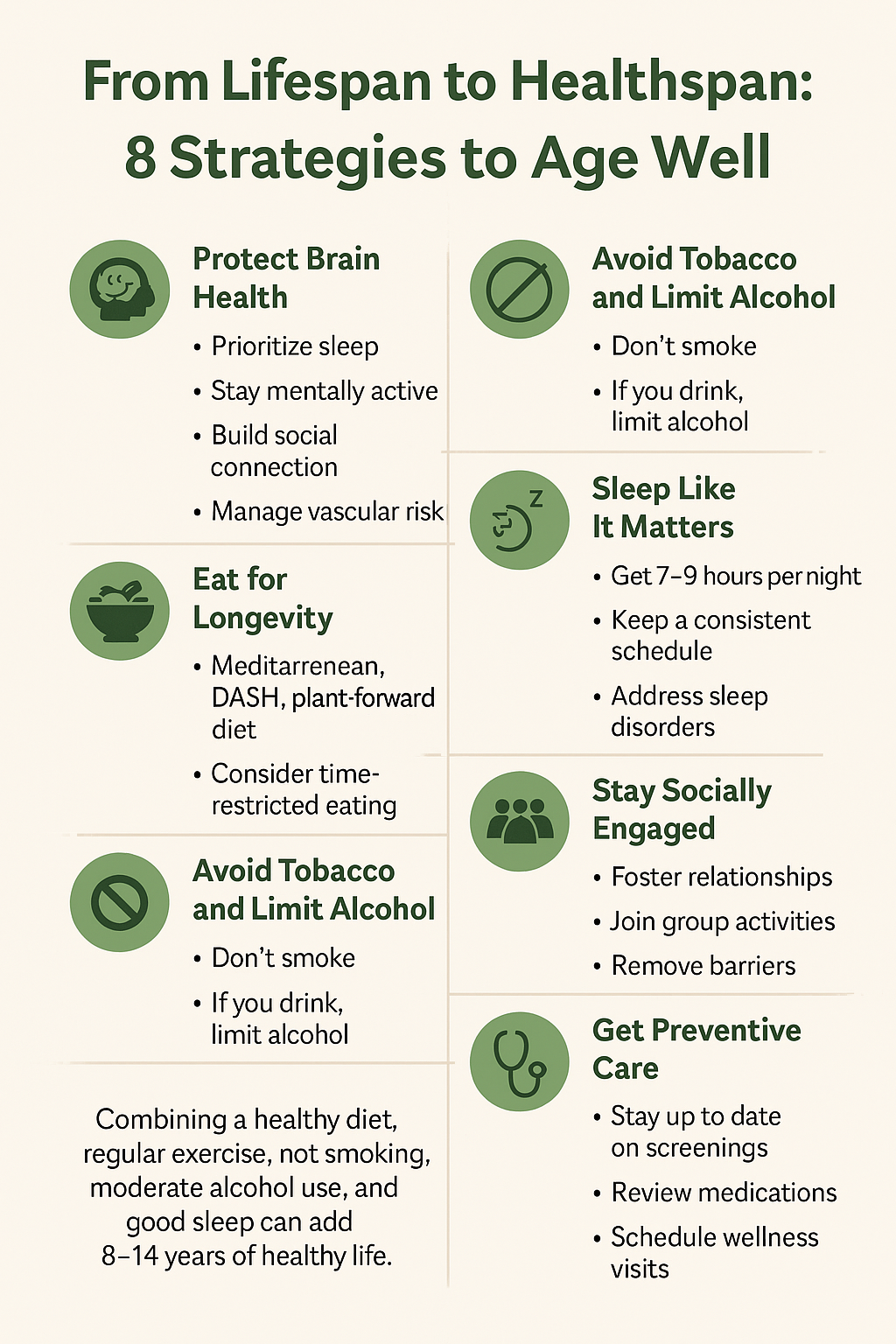
From Lifespan to Healthspan: 8 Strategies to Age Well
Learn how to improve your healthspan—the years you live in good physical and mental health—with eight proven strategies for aging well. This post covers evidence-based tips on nutrition, exercise, sleep, preventive care, and more. Discover how lifestyle habits like not smoking, limiting alcohol, and staying socially connected can add up to 14 years of healthy life.

Longevity vs. Healthspan: What’s the Difference—and Why It Matters
Longevity tells us how long we live. Healthspan reveals how well we live. In this post, we break down these two vital concepts in aging—and why shifting the focus from lifespan to healthspan could transform the way you think about getting older. Learn how to extend not just your years, but the quality within them.

Prior Authorization Is Coming to Traditional Medicare: What You Need to Know
Big changes are coming to Medicare in 2026. For the first time, Traditional Medicare will begin requiring prior authorization for select outpatient services—starting with a pilot program in six states. In this post, we break down what prior authorization really means, why it's being introduced, which procedures are affected, and how this could impact access to care for older adults. If you live in Texas, Oklahoma, Arizona, Ohio, Washington, or New Jersey, this is a change worth watching.

Medicaid Cuts and the Future of Health Access for Older Adults
As Congress pushes through sweeping cuts to Medicaid, the impact on older adults is already casting a long shadow. From shuttered rural hospitals to longer waitlists for home care, the consequences could reshape how millions age in America. Here's what the One Big Beautiful Bill means for health care access—and why the fight for healthy aging is far from over.

What Does Healthcare Really Cost in Retirement?
Healthcare is one of the biggest—and least predictable—costs in retirement. Even with Medicare, most older adults face expenses for premiums, prescriptions, and services that aren’t fully covered. This post explores the average costs retirees can expect, what Medicare includes (and leaves out), and how to plan ahead for long-term care—one of the most significant gaps in coverage. If you haven’t factored healthcare into your retirement strategy, now is a good time to start.

Understanding the Cost of Healthcare as We Age: A Guide to Medicare’s Four Parts
As we age, understanding healthcare costs becomes essential. Medicare offers a foundation—but with four distinct parts, it’s not always easy to navigate. In this post, we break down the basics of Medicare Parts A, B, C, and D, explore what they cover, and outline what older adults can expect to pay. From hospital stays to prescription drugs, knowing how each part works can help you better plan for the road ahead.

Brain Health & Aging: What Works—and What Doesn’t
Not all memory aids are created equal. While supplements like Prevagen are heavily marketed to older adults, clinical evidence shows they don’t improve memory or prevent cognitive decline. Instead, proven strategies like social connection, physical activity, and lifelong learning play a far greater role in protecting brain health with age. In this post, we break down the science behind Prevagen, explore what actually supports cognitive wellness, and offer practical tips for boosting brain power—naturally

Healthy Aging: The Importance of Screening Tests
Aging well isn’t just about staying active—it’s about proactive health screenings that help detect diseases early and improve long-term outcomes. The U.S. Preventive Services Task Force (USPSTF) outlines essential screenings, from bone density tests for osteoporosis to colonoscopies, lung cancer screening, and abdominal aortic ultrasounds for smokers.
While some screenings, like breast cancer and colorectal cancer tests, have clear benefits, others—such as prostate cancer screening—remain uncertain in effectiveness. This guide walks through the latest recommendations to help older adults take charge of their health. Have you scheduled your routine screenings this year? Summertime is a great time to catch up!

Move More, Live Longer: Exercise & Hydration for Heart Health This Summer
Staying active is one of the most powerful ways to support heart health, cognitive function, and overall longevity. But as summer temperatures rise, maintaining a safe workout routine requires a few adjustments. The American Heart Association (AHA) and Journal of the American College of Cardiology emphasize the importance of aerobic activity, strength training, and hydration—all crucial for aging well.
Whether it’s brisk morning walks, resistance training indoors, or swimming to beat the heat, movement keeps both the body and mind thriving. With research showing that 7,000 steps per day can reduce cardiovascular risk and weight-bearing exercises help protect against osteoporosis, small changes can lead to big health benefits.
Let’s explore expert-backed strategies to modify exercise routines for warmer weather, maximize hydration, and ensure that movement remains enjoyable and safe at every stage of life.

Sleep and Mental Health: A Personal Approach to Restorative Rest
Sleep isn’t always easy—trust me, I’ve been there. As a geriatrician (and someone who’s struggled with restless nights), I’ve found a few simple tools that really help: a consistent nighttime routine, reframing anxious thoughts, and journaling to “wrap up” the day. These small practices have made a big difference in my own life—and they can support better sleep and mental well-being at any age.

Loneliness in Older Adults: How to Stay Social and Connected
Loneliness isn't just a passing emotion—it’s a major public health concern, especially for older adults. Research shows that social isolation can be as dangerous as smoking, increasing the risk of depression, heart disease, and dementia. But the good news is that meaningful connections can be cultivated at any age. Learn simple, effective ways to stay engaged, supported, and socially connected as you age.

Mindfulness for Seniors: Simple Practices for Daily Calm
Looking for simple ways to reduce stress and feel calmer each day? Mindfulness practices like Tai Chi, yoga, and meditation offer gentle yet powerful benefits for older adults. In this post, we’ll explore how these activities can improve balance, boost mood, and support brain health—plus easy ways to get started today.
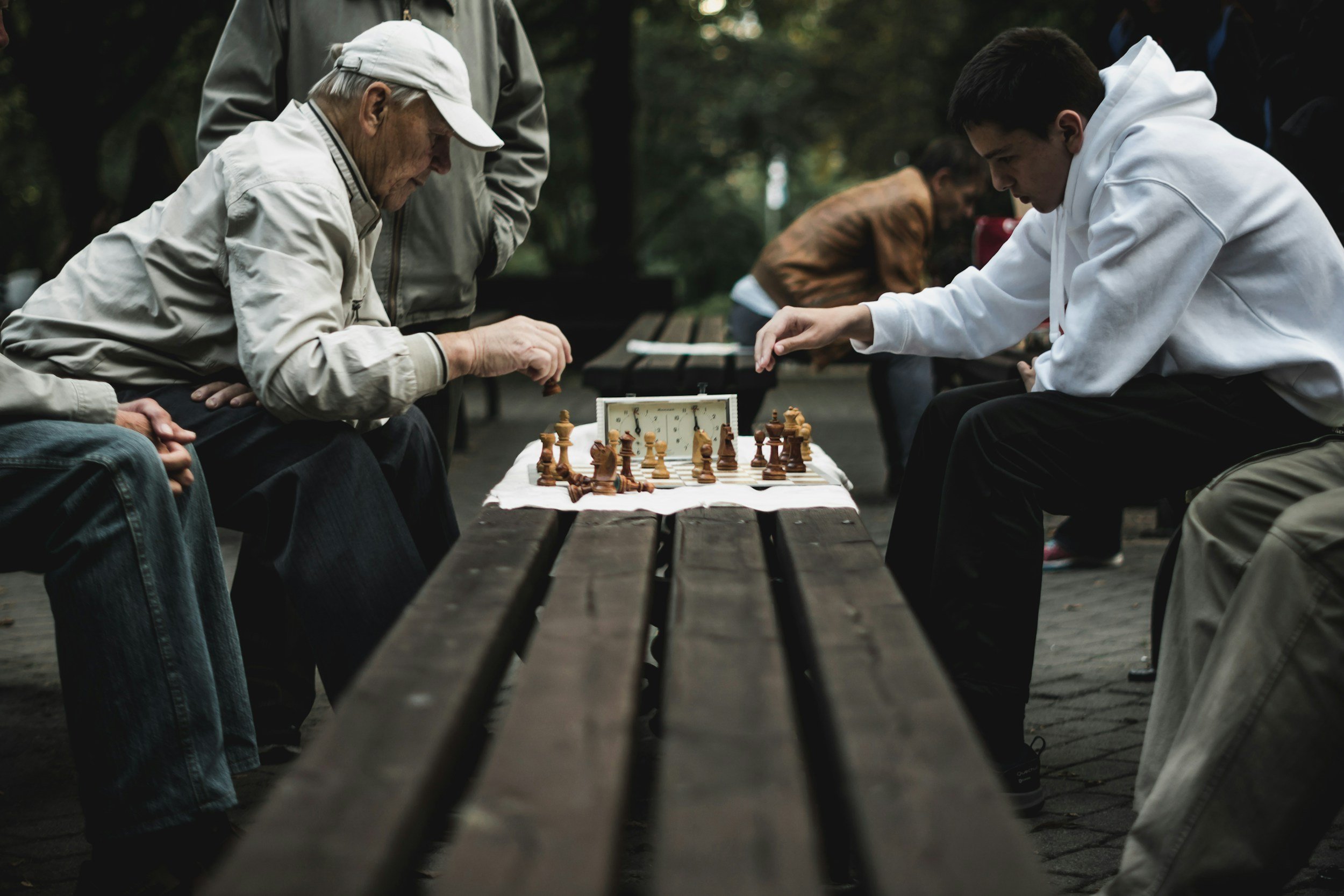
Boosting Brain Health: 3 Key Habits to Support Cognitive Aging
Want to keep your brain sharp as you age? Protecting your hearing, staying socially connected, and addressing mood changes early are three powerful habits that support cognitive health. Learn how small steps—like a hearing check, a phone call with a friend, or treating low mood—can make a big difference for your memory and thinking skills.

Natural Ways to Reduce Allergy Symptoms
Spring can be beautiful—but if allergies hit you hard, it might feel more like a season of sneezes. Discover safe, natural ways to ease allergy symptoms, and why older adults should steer clear of medications like Benadryl. Breathe easier with these expert-backed tips.

Mindful Eating: How to Build Awareness Around Food Choices
Mindful eating is more than just slowing down at the dinner table—it’s about reconnecting with your body’s hunger cues, savoring your meals, and making thoughtful choices that support your health. Learn how this simple habit can transform your eating experience and support healthy aging.

Hydration Tips for Warmer Weather: How Much Water Do Older Adults Really Need?
Staying hydrated is essential—especially as the weather warms up. For older adults, one of the best indicators of hydration isn’t how many glasses you drink, but the color and volume of your urine. In this post, we break down simple hydration tips and how to know if you're getting enough fluids.

Spring Cleaning for Your Health: Detox Your Habits, Not Just Your Home
Spring isn’t just for tidying your home—it’s the perfect time to refresh your habits, too! This week, we’re exploring how a little "health habit detox" can help you feel energized, clear-headed, and ready for the season. From cleaning up your diet to resetting your sleep routine, learn how to spring clean your way to better health.
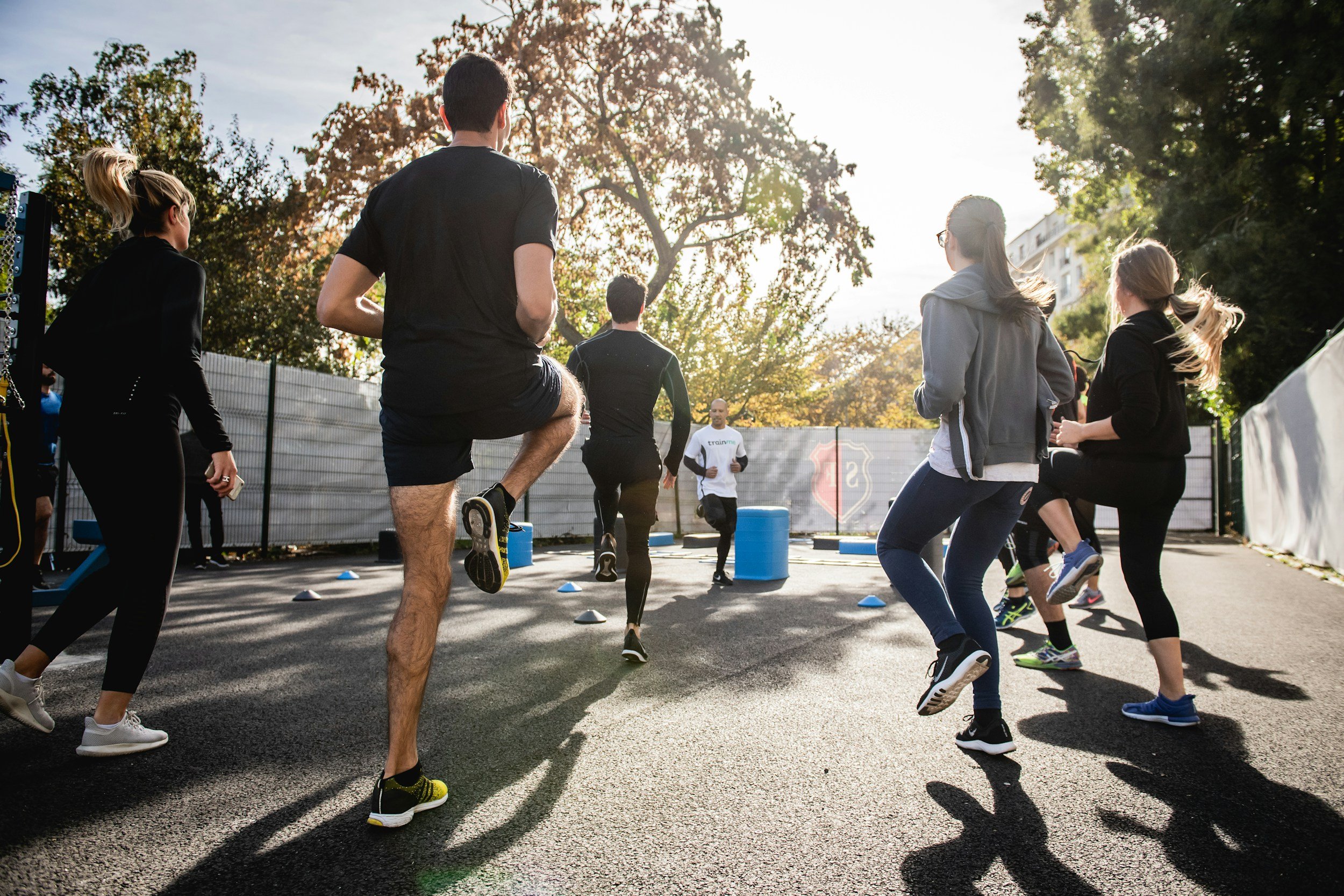
Spring into Motion: Fun Ways to Stay Active All Season Long
Spring is the perfect time to bring more joyful movement into your life! From dancing in the living room to gardening in the sunshine, discover easy, enjoyable ways to stay active and support your health all season long.
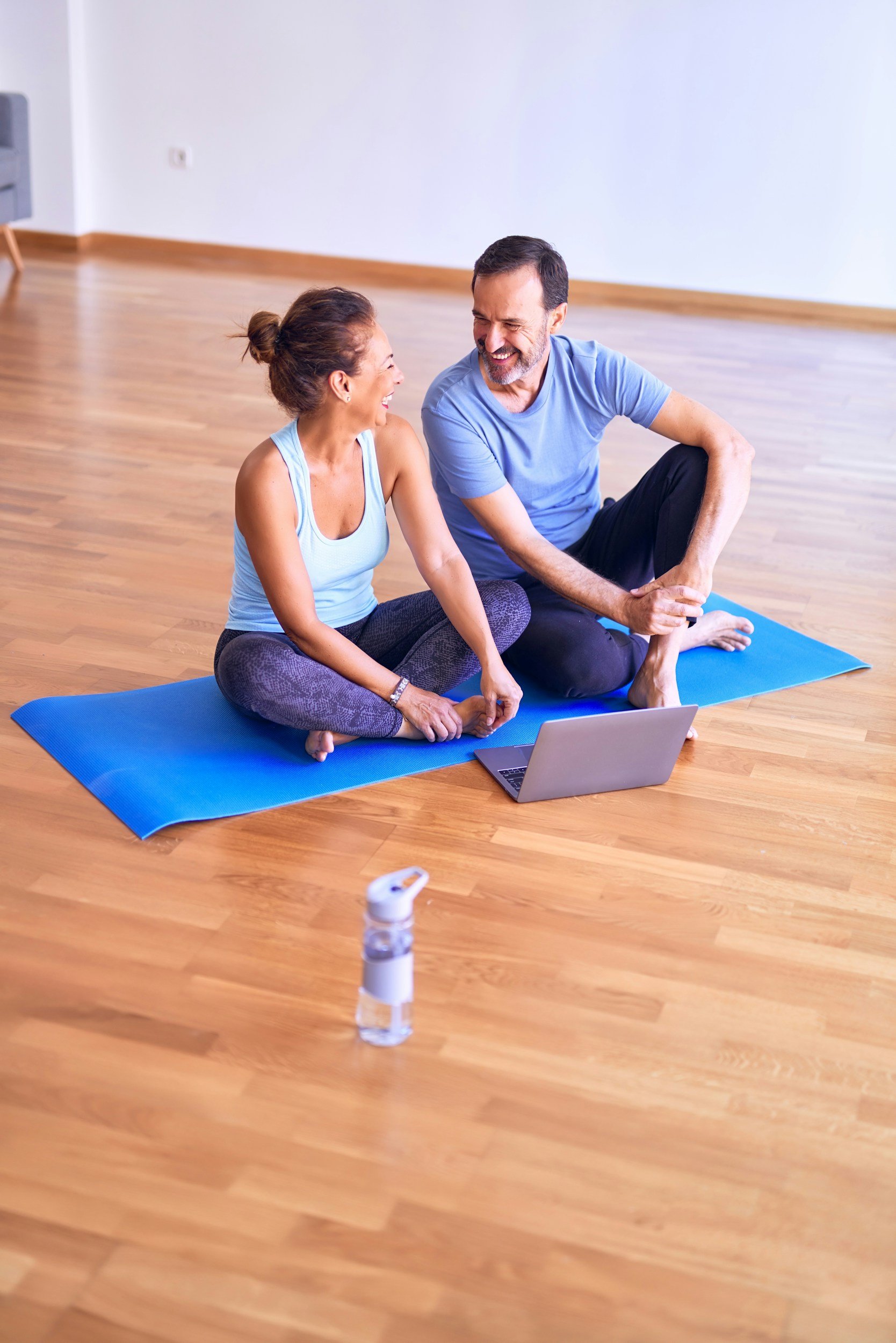
How to Set Realistic Fitness Goals in Spring
Spring is a season of renewal, making it the perfect time to refresh your fitness routine. Whether you're looking to boost your activity levels, improve strength, or enhance overall well-being, setting realistic fitness goals is key. The American Heart Association recommends at least 150 minutes of exercise per week, and with the right approach, you can make movement a sustainable part of your lifestyle. Learn how to set achievable goals, stay motivated, and embrace a healthier, more active you this spring!
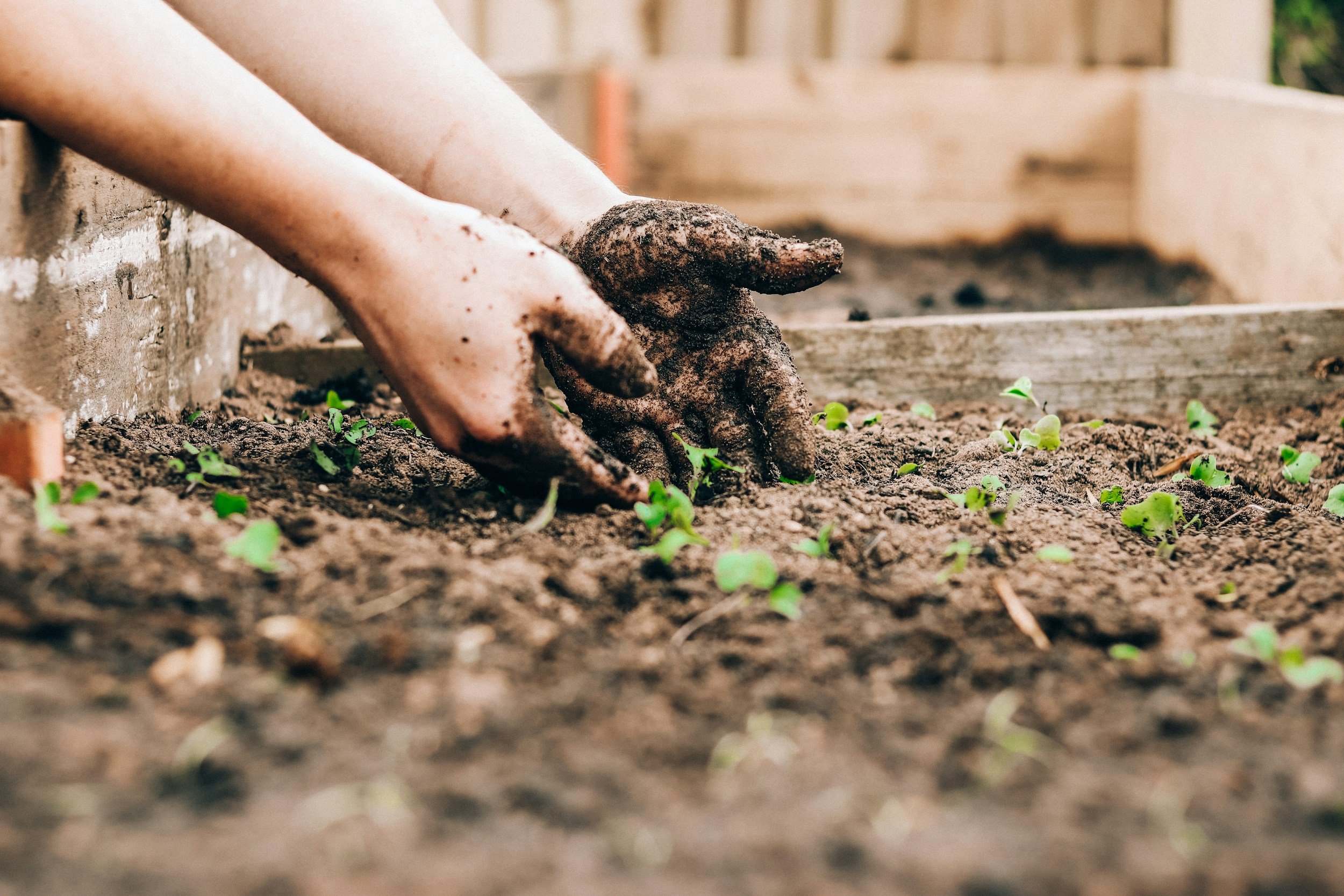
Gardening for Health: Easy-to-Grow Low-Glycemic Vegetables
Gardening isn’t just a rewarding hobby—it’s also a great way to grow fresh, nutritious foods that support healthy aging. Low-glycemic vegetables like spinach, zucchini, and bell peppers can help stabilize blood sugar levels while providing essential vitamins and fiber. Whether you're a beginner or an experienced gardener, these easy-to-grow veggies can thrive in your garden or even in containers. Start planting today and enjoy the health benefits of homegrown produce!

